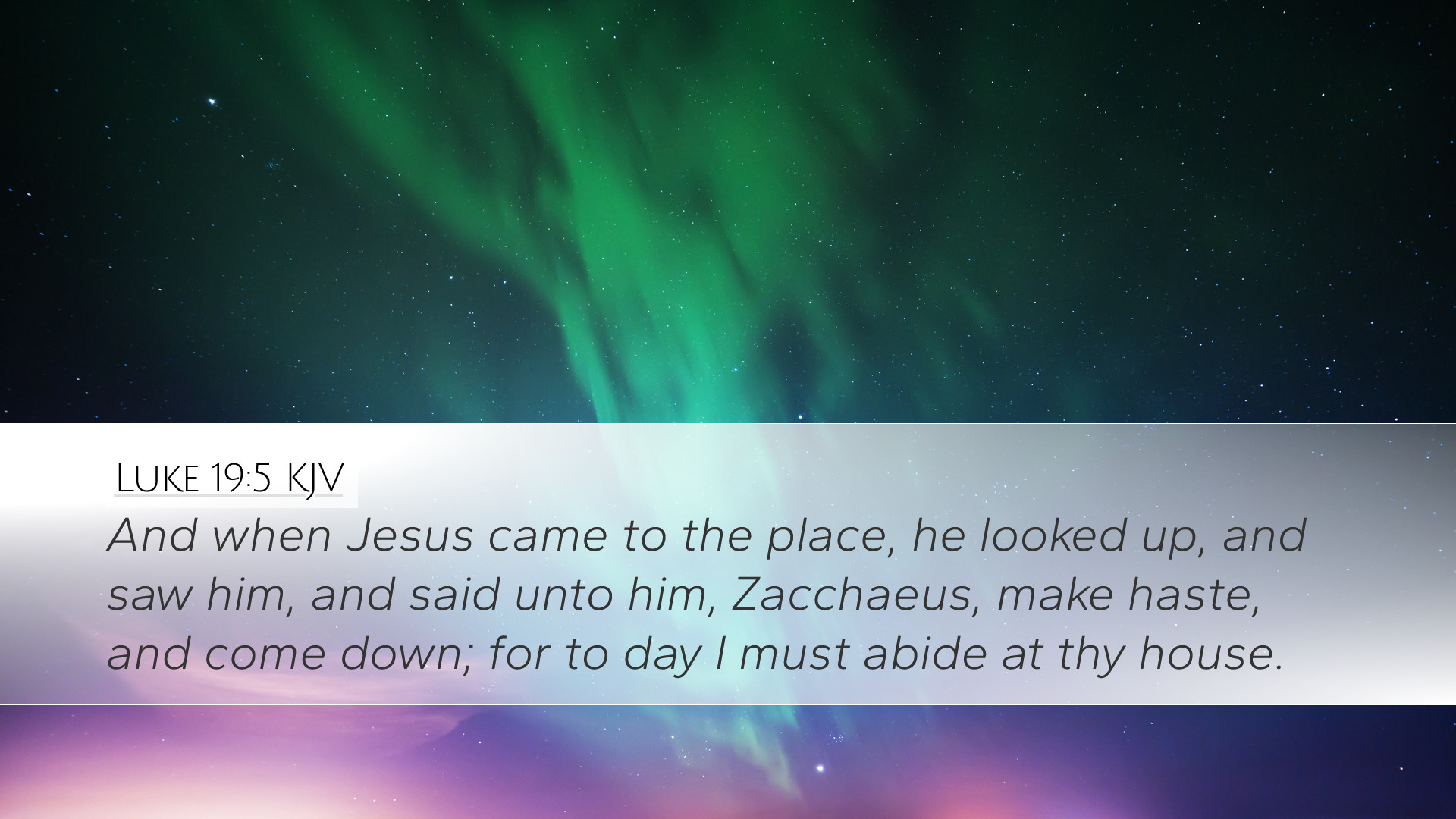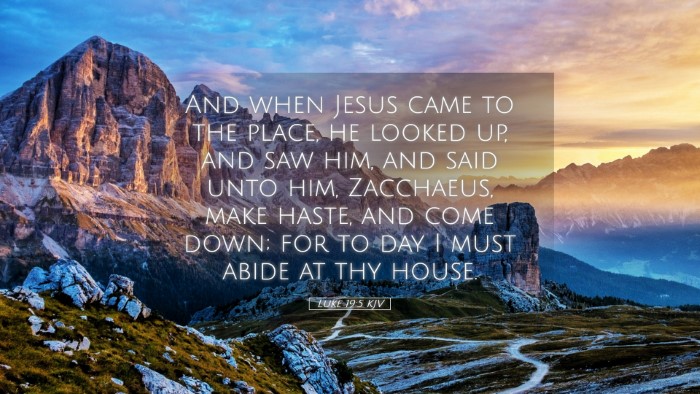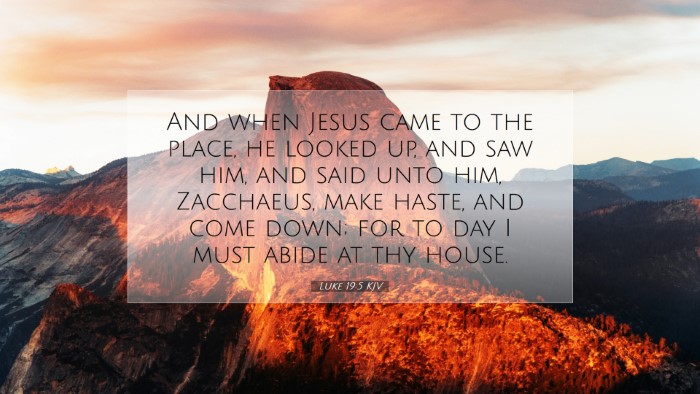Exegesis and Commentary on Luke 19:5
In Luke 19:5, we encounter a pivotal moment in the encounter between Jesus and Zacchaeus, a chief tax collector. This verse reads:
"And when Jesus came to the place, he looked up, and saw him, and said unto him, Zacchaeus, make haste, and come down; for to day I must abide at thy house." (KJV)
Contextual Background
This moment takes place in Jericho as Jesus journeys to Jerusalem, a significant aspect of the narrative in Luke that reveals the urgency and divine purpose of Christ’s mission. Zacchaeus, being a publican, represents the marginalized and those despised by society, thus setting the stage for a remarkable transformation.
The Significance of the Encounter
The interaction between Jesus and Zacchaeus encapsulates several theological themes such as grace, repentance, and the inclusivity of the Gospel.
- Grace and Acceptance: Jesus acknowledges Zacchaeus, despite his status as a sinner. This action illustrates God's willingness to accept the outcast.
- Divine Initiative: Jesus seeks out Zacchaeus, demonstrating the proactive nature of divine grace. The call to come down signifies invitation and urgency.
- Repentance and Restoration: Zacchaeus's subsequent actions speak to the transformative power of encountering Christ, illustrating true repentance.
Commentary Insights
The following commentaries provide intricate insights into the implications of this verse:
Matthew Henry's Commentary
Matthew Henry emphasizes the profound nature of Jesus's call. He notes that Jesus demonstrates His omniscience by knowing Zacchaeus's name and condition without having met him prior. Henry points out that this underscores Jesus's role as not just a teacher but as the Son of God, who knows the hearts of men. Moreover, His command to "make haste" indicates the urgency of salvation, reflecting the immediate and personal nature of divine grace.
Albert Barnes' Notes on the Bible
Barnes highlights the social barriers that Jesus crosses by addressing Zacchaeus directly. He comments on the societal stigma associated with tax collectors, portraying them as agents of oppression. Barnes also interprets "I must abide at thy house" as indicative of Jesus's mission to bring salvation to the most unlikely of individuals. This choice confounds societal expectations and reinforces the theme that Christ came to seek and save the lost.
Adam Clarke's Commentary
Adam Clarke stresses the personal nature of Zacchaeus's experience. He notes that the act of Jesus looking up at Zacchaeus signifies an acknowledgment of individual worth, which is crucial for understanding one's value in the eyes of God. Clarke also points out the importance of Zacchaeus's response—his swiftness in obeying Christ’s command reflects a heart ready for change. Clarke argues that this instance illustrates how genuine faith manifests in prompt action.
Reflective Theological Themes
Analyzing Luke 19:5 through these commentaries allows for deep theological reflection:
- The Nature of Christ's Ministry: This verse illustrates Jesus's commitment to reaching the marginalized. His actions model the heart of God, which desires all to come to repentance.
- Faith and Action: Zacchaeus embodies a model of faith responding through action. His decision to come down signifies readiness to interact with the divine and accept transformation.
- The Inclusivity of Salvation: Jesus’s call to Zacchaeus reveals that salvation is extended to all, regardless of social, moral, or spiritual status. This reinforces a core message of the Gospel: that anyone can encounter the grace of Christ.
Practical Application for Pastors and Theologians
In preaching and teaching, the passage encourages several applications:
- Understanding the Heart of Jesus: Leaders are encouraged to emulate Christ’s compassion and actively seek out the lost in their communities.
- Addressing Barriers: The text calls for reflection on the social barriers that exist within congregations and specific efforts to reach out to individuals of all backgrounds.
- Encouraging Actionable Faith: Pastors can exhort congregations to respond to Christ's call with urgency, signifying the importance of faith that acts.
Conclusion
Luke 19:5 serves as a powerful reminder of Jesus's mission and the transformational power of His grace. Through the insights garnered from various commentaries, it is evident that this text is rich with theological meaning and practical implications for today's believers. It encourages an open-hearted approach to evangelism, emphasizing that in Christ, everyone is invited to experience redemption and renewal.


